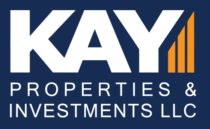Many clients that have been interested in doing a 1031 exchange into a NNN property find the DST 1031 property particularly attractive. These same clients often think that the only way for them to become passive owners of real estate is to purchase a NNN leased property; however, they often are very skeptical about placing such a large amount of their net worth into one single NNN property.
The DST 1031 option has become an increasingly popular option for investors that were previously considering a NNN property. Here are some of the reasons why 1031 investors may choose DST 1031 properties over traditional NNN properties:
Access to the same type of NNN leased real estate and tenants
Tenants such as CVS, BJ’s Wholesale Club, Walgreens, Bridgestone/Firestone, Advance Auto Parts, Sherwin Williams, FedEx, 7 Eleven, Starbucks and Dunkin’ Donuts have been structured and used as DST 1031 properties in the past. Many investors love the idea of this caliber of tenants potentially paying them rent each month.
It is important to note that actual tenants will vary depending on the various DST 1031 properties available at the time of your exchange. The companies listed may not be represented in all programs and may not always be available.
Diversification
Many 1031 investors realize that placing a large portion of their net worth into a single NNN property is just not prudent. The idea of placing $2 million into a 7 Eleven, $1.8 million into a Starbucks or $4-15 million into a Walgreens or CVS makes clients nervous from a concentration risk standpoint.
The DST 1031 property provides a potential solution to investors wanting NNN leased proper- ties and national tenants but with the ability to build a diversified portfolio of them. This is in contrast to “betting the farm” on a single piece of NNN property.
It is important to note that diversification does not guarantee against losses or guarantee profits. Investors should speak with their CPAs and attorneys for guidance as to if a DST 1031 property investment is suitable for their particular situation prior to considering a 1031 exchange.
Inflation protection potential
The way that the U.S. government has been printing money and so cleverly titling it as quantitative easing causes many investors to believe that inflation is coming. The problem with most NNN leased properties is the flat to minuscule rental increases that will potentially cause values to suffer. For example, Walgreens and CVS often have leases with primary terms that are from 20-25 years. During this 20-25 year period, the rent that they pay to the landlord will stay the same for the duration of the lease. Inflation could potentially wreak havoc on a static income stream such as this.
DST 1031 properties allow 1031 investors access to asset classes that historically have shorter lease terms than most NNN properties, such as multifamily apartments and self-storage properties, without the burden of active management. Asset classes with shorter lease terms can potentially be attractive to investors because when the leases are reset, the tenants are theoretically paying a greater amount than the year before, allowing the landlord to pass along any potential inflationary pressures to his or her tenants.
DST 1031 properties are “pre-packaged” for 1031 investors to be able to close on immediately
For an investor in a 1031 time crunch, a DST property that has been pre- packaged can be a potential solution to a very real capital gains tax burden. The 45-day identification period of a 1031 exchange moves very quickly, and investors wanting to purchase a single NNN property have very real risks, such as financing not coming through, issues with third-party reports such as appraisals and environmental reports and sellers not disclosing material items in the property’s lease, such as early termination clauses or co-tenancy clauses, which can change the economics of the previously agreed upon purchase price.
Much can go wrong with trying to purchase a NNN property. The DST 1031 provides a solution to investors not wanting to be burdened with the closing risks, resulting in a potentially failed 1031 exchange of a NNN property.
For a free infographic on why investors choose DSTs over NNNs, go to kpi1031.com/register and sign up.
All real estate contains risk. Please read the full private placement memorandum for a discussion of each property’s business plan and risk factors. There are no guarantees for projected cash flow and/or appreciation. Please do not invest in real estate offerings if you cannot afford to lose your entire investment principal.

